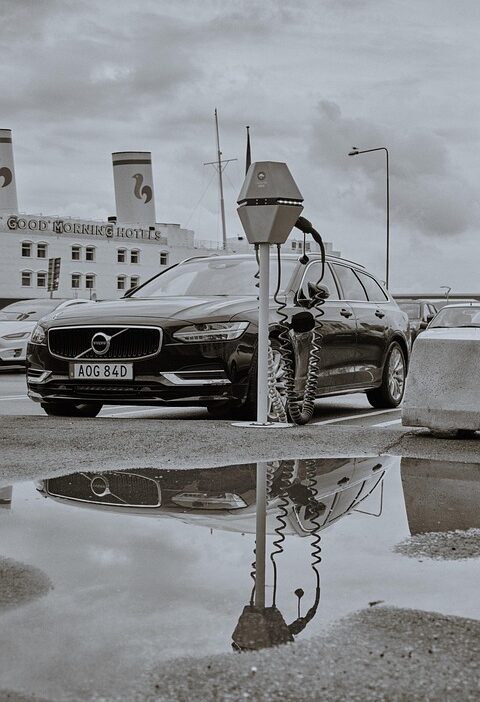The electric vehicle (EV) industry is undergoing a transformative shift, driven by innovation, sustainability, and a commitment to a greener future. Among the pivotal contributors to this evolution are women whose groundbreaking work is not only shaping the technology but also redefining leadership roles within the sector. As we celebrate International Women’s Day and the increasing visibility of women in traditionally male-dominated fields, it is crucial to spotlight female innovators who are leading the charge in the electric vehicle landscape.
Breaking Barriers: Women in Key Positions
While the EV industry has historically been male-dominated, women are increasingly occupying pivotal leadership roles. Executives such as Mary Barra, CEO of General Motors, have made significant strides in promoting electric mobility. Under her leadership, GM has committed to an all-electric future, pledging to invest billions in EV technology and infrastructure. Barra’s vision demonstrates how female leaders are not just participants but are catalysts for change within the industry.
Another notable figure is Linda Zhang, Chief Engineer of the Ford F-150 Lightning, an all-electric version of the iconic F-150 truck. Zhang’s work is instrumental in bridging traditional automotive values with cutting-edge technology, showcasing how women are at the forefront of design and engineering innovations.
Pioneering Innovation
Women’s contributions extend beyond leadership; they are driving technological advancements as engineers, designers, and researchers. Female engineers like Elisa DiStefano at Rivian are pushing the boundaries of battery technology and sustainable materials. The emphasis on eco-friendly manufacturing processes is crucial in reducing the carbon footprint of EV production, aligning with global sustainability goals.
Moreover, companies like Tesla have seen significant contributions from women in engineering and software development. Laura McGarry, who has worked on Tesla’s Autopilot systems, exemplifies how women are critical to advancing automation and AI in EV technology. Their work helps make vehicles smarter, safer, and more efficient.
Promoting Diversity in Innovation
Diversity fosters innovation, and many women in the EV sector recognize the importance of inclusion. Groups like Women in Electric Vehicles (WEV) are committed to empowering women through networking, mentorship, and educational initiatives. By creating supportive communities, these organizations aim to encourage young women to pursue careers in STEM fields and to inspire them to become future leaders in the industry.
The focus on diversity is not only about equality; it’s also about driving creative solutions. Studies consistently show that diverse teams are more innovative, providing a compelling case for the EV industry to embrace inclusivity at all levels.
The Role of Startups and Entrepreneurship
The rise of electric vehicles has also led to a surge in startups focused on everything from battery development to infrastructure improvements. Many of these entrepreneurial ventures are founded or led by women. For instance, companies like Canoo and Flock Freight are making waves in the EV ecosystem, with women at the helm driving innovation and strategic direction.
Women entrepreneurs are not just creating products; they are shaping the future of transportation. They understand the challenges of the industry and are dedicated to designing solutions that prioritize sustainability and convenience. By cultivating new technologies and business models, they are influencing how we view mobility in the 21st century.
Collaborating for a Greener Future
Women in the EV industry also understand the importance of collaboration, working alongside governments, non-profits, and other stakeholders to advocate for policies that promote electric vehicle adoption. Their efforts help create a supportive ecosystem for EV development and infrastructure expansion, crucial for a sustainable transition.
Organizations led by women, such as the Electric Drive Transportation Association (EDTA), actively lobby for legislation that facilitates the growth of the EV market. Their influence in policy discourse ensures that the female perspective is included, fostering an environment conducive to innovation and progress.
Conclusion: A Charge Toward the Future
As the electric vehicle industry continues to evolve, the contributions of women will be increasingly vital. Their leadership, innovation, and commitment to sustainability are driving the future of transportation toward a greener path. By breaking barriers and challenging the status quo, these female innovators not only inspire the next generation but also emphasize the need for diversity in leadership roles.
The journey towards an electrified future is not just about technology; it’s about collaboration and inclusion. By championing the efforts of women in the EV industry, we pave the way for a more sustainable, innovative, and equitable future for all. As we continue this transition, it is essential to recognize and support the women who are leading the charge, ensuring their voices and visions shape the landscape of electric mobility.



